James Diossa and Stefan Pryor want to be state treasurer. Here's how they'd do the job
It's a match-up worthy of a Hollywood political thriller:
The man who rebuilt Central Falls against the man who rebuilt lower Manhattan.
James A. Diossa, who served as mayor of Central Falls from 2013 to 2021 as the city emerged from bankruptcy, is squaring off in the Sept. 13 Democratic primary for state general treasurer against Stefan I. Pryor, who was president of the Lower Manhattan Development Corporation, which oversaw reconstruction of the World Trade Center and Wall Street areas in the wake of the 9/11 terrorist attacks.
While neither man acted alone in either rebuilding effort, they each played a key role at a critical time. Now, they are seeking a statewide office whose primary job is managing the state's finances, including the more-than-$10-billion state and municipal employee pension fund.
Digging deeper: Stefan Pryor's political opponent criticized his past record. The Journal investigated.
Digging deeper: James Diossa's political opponent accuses him of mismanagement. The Journal investigated
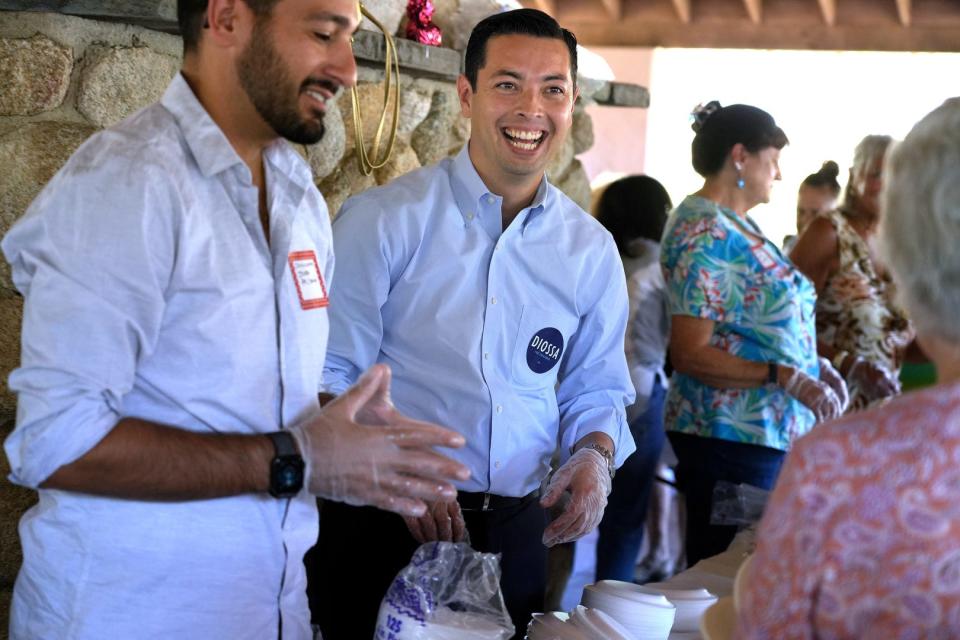
What does the state treasurer do?
The state general treasurer is responsible for managing the state's financial accounts and, perhaps most prominently, oversees the state employee retirement system, which includes some municipal employees, and manages the $10-billion investment fund that pays those pensions.
The treasurer runs the Crime Victim Compensation Program, which reimburses people for certain expenses in the aftermath of crimes and returns millions in "unclaimed property" such as money in dormant bank and business accounts.
The treasurer also can influence policy in areas such as school construction, housing, student loans and infrastructure improvements as a member of several state boards dealing with those areas.
Diossa stepped up when things were down in Central Falls
Central Falls couldn't get much lower than where Diossa found it when he first joined the City Council before becoming mayor more than a decade ago.
Budget cuts threatened the city's public library and post office.
Charles D. Moreau, the mayor before Diossa, resigned under a cloud and agreed to plead guilty to federal corruption charges.
The city declared bankruptcy and its finances were under a strict five-year plan that left local officials little room to negotiate.
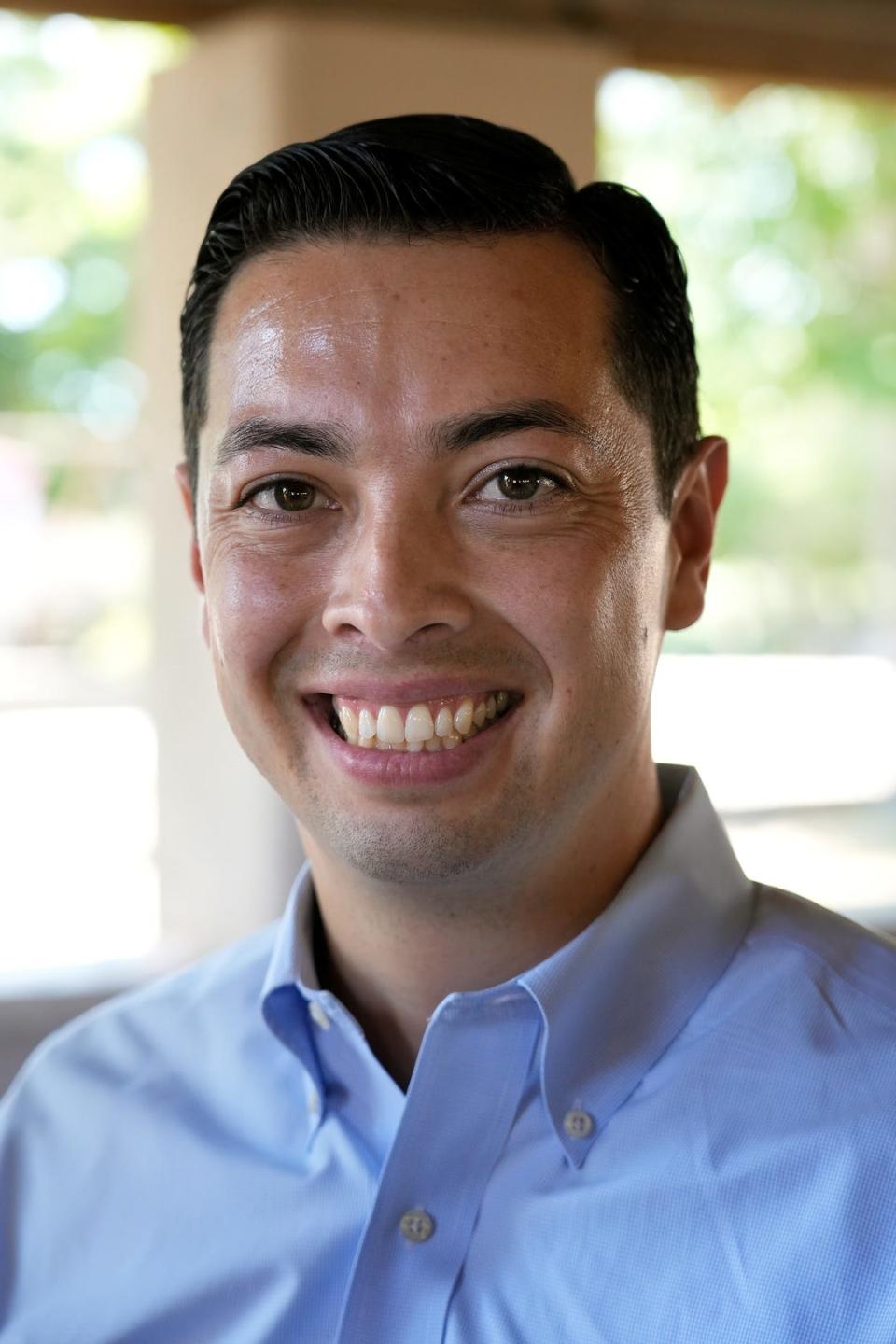
"Central Falls hit rock bottom, went insolvent, bankrupt," Diossa said this month. "There were hundreds of boarded up homes. Our roads were in disarray. The city looked messy. Our parks were in disrepair. The pride in the city was at a very low, and faith in government was even worse."
Diossa said he put together plan to clean up the city, to make parks welcoming places and to make the city's two main streets attractive.
"Things like this allow people to see change, see improvements," he said.
Perhaps less visible, he said, were "sustainable, predictable" budgets, changes to diversify the police force, bringing a higher-education presence to the city – Rhode Island College's Workforce Development Center – and moving the city's ailing pension plan into the state system.
"Not only did we take a city that had a junk-bond status, we were able to move our bond rating up to investment grade," said Diossa.
Diossa grew up in Rhode Island, worked with all 39 cities and towns
Diossa, 37, was born in Central Falls. His father had fled Medellín, the Colombian city run by drug lord Pablo Escobar. Diossa now lives in Pawtucket, where he has a daughter with fiancée Sandra Cano, a state senator.
Diossa graduated from Central Falls High School in 2003, attended the Community College of Rhode Island and earned a bachelor's degree from Becker College in Massachusetts.
Before becoming mayor, he worked as a parent-engagement coordinator at College Crusade of Rhode Island. Since leaving office, he has been a senior policy adviser at Brown University's Policy Lab.
Diossa said that his time as mayor – managing services, budgets, pensions and personnel, as well as working with the other 38 cities and towns – would serve him well as treasurer. He said he would use a "bottom-up" leadership style.
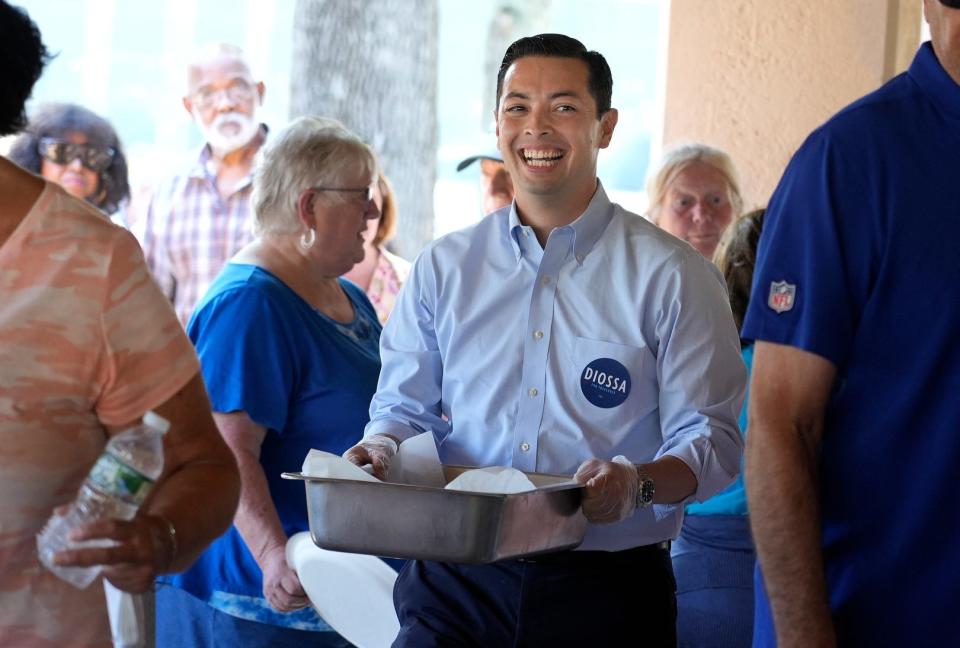
His top priority as treasurer would be to manage pension investments in a way that would minimize risk while still bringing good returns.
"I will stay on course with the current treasure's strategy of back to the basics," Diossa said, dubbing his strategy "maintain the basics."
"People are hurting, people are feeling the squeeze. Some folks who are retired are on food stamps. That breaks my heart," Diossa said, adding that he would avoid gimmicky investment strategies that promise high returns but come with high risk. "I don't want to play games with the pension."
Other issues he would work on:
• Helping cities and towns improve infrastructure and build new schools.
• Using his seat on the board of Rhode Island Housing to improve home affordability.
• Increasing funding for the Crime Victim Compensation Program.
• Providing expert financial assistance for cities and towns through experts working for the treasurer's office.
"I'm going to be very focused on the municipal level up," he said.
Early this summer, Diossa picked up the endorsement of the state Democratic Party at its convention. He beat Pryor 84 votes to 73, the tightest margin in any of the statewide endorsement contests this year. He also has the endorsement of several public-employee unions, including both statewide teachers unions and the Providence firefighters union, plus those of more than half a dozen mayors.
Pryor rose from the ashes of the World Trade Center
Pryor was at his Manhattan apartment on the morning of Sept. 11, 2001, an executive at the Partnership for New York, overseeing the organization's educational programs.
From in front of his apartment, Pryor saw the first plane the terrorists flew into the Twin Towers of the World Trade Center. Back inside, he watched through his windows as the second plane hit. When the towers collapsed, Pryor and thousands of his neighbors fled lower Manhattan through a cloud of ash and soot toward the Manhattan Bridge, avoiding the nearer Brooklyn Bridge, worried the iconic span could be a target of the still-unfolding attack.
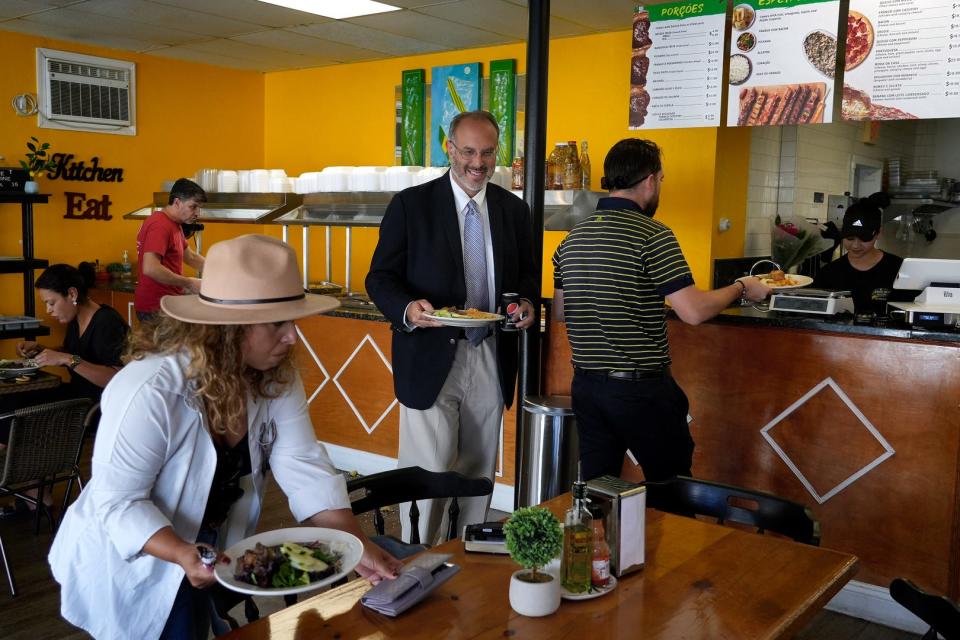
Within weeks, Pryor and his boss at the Partnership were invited to meet with New York banker John C. Whitehead, who summered in Little Compton, and who was the newly appointed chairman of the Lower Manhattan Development Corporation.
"He informed us that there was not yet a budget, not yet an office, and a very big mandate," Pryor told The Journal this month. "By the end of that meeting, he asked me whether I would come on board and set up the agency."
Pryor rose through the ranks, eventually becoming president of the corporation.
The corporation had two very visible mandates: oversee the rebuilding of the World Trade Center and the establishment of a memorial to those who were killed.
It had equally important, though less visible, tasks as well: reconnecting subway and commuter rail lines that had run underneath the World Trade Center, shoring up the technical infrastructure that runs the nearby New York Stock Exchange and coordinating the flow of billions of dollars of federal, state, city and private money being spent on the effort.
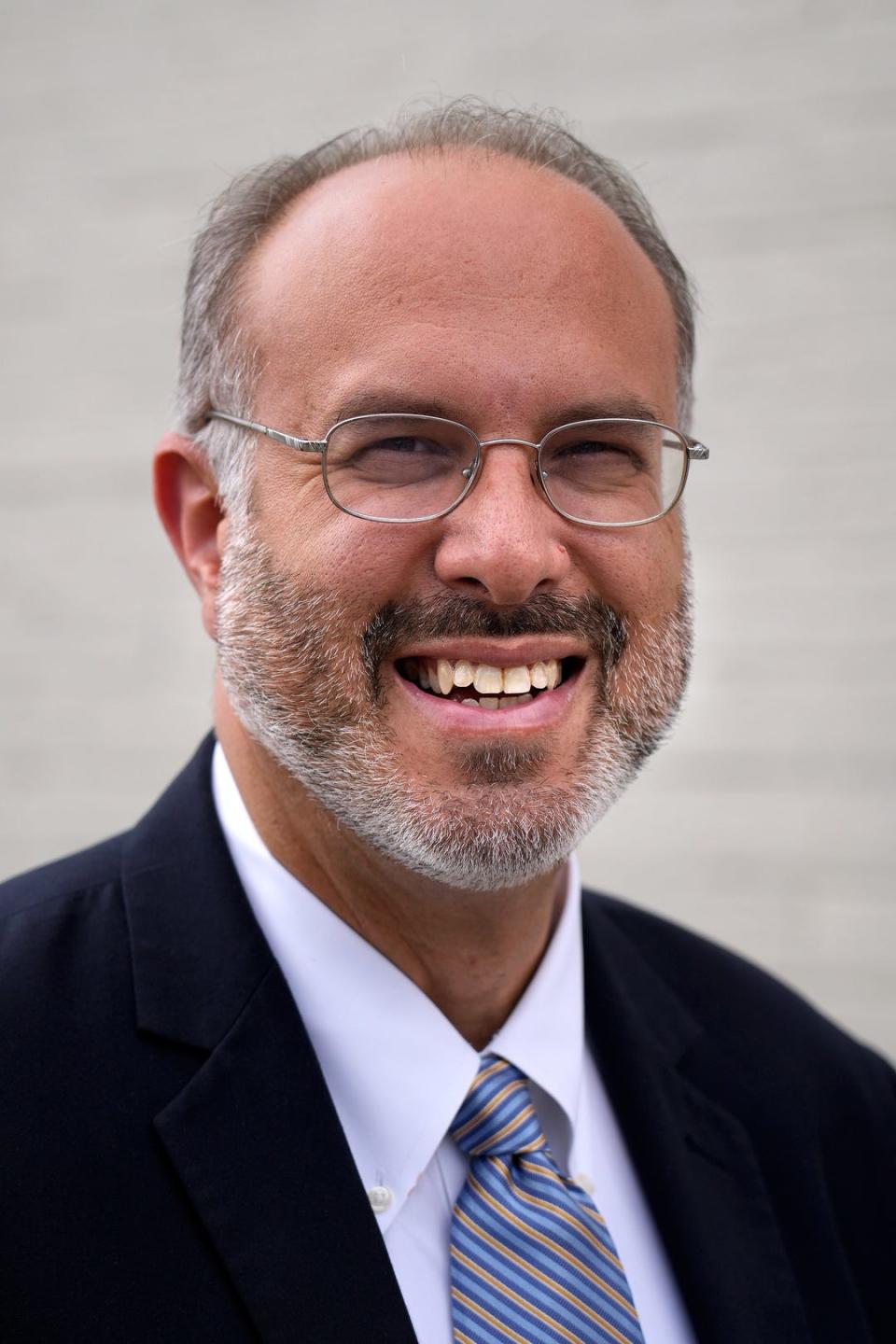
Pryor grew up in New York and hopes never to move from RI
Pryor, 50, was born in New York. He has undergraduate and law degrees from Yale University, where he befriended Gina Raimondo, who would go on to become Rhode Island's governor and bring him to the state in 2015 as commerce secretary, the head of the Rhode Island Commerce Corporation, the state's economic-development agency.
Pryor has never married and has no children.
After his time in New York City, Pryor served as deputy mayor for economic development in Newark, New Jersey, and then state education commissioner in Connecticut.
Though not nearly as dramatic as what brought him to prominence in New York, his time in Rhode Island follows a similar plot line.
Instead of a meeting with banker Whitehead, this time it was a call from college chum Raimondo.
"She expressed that Rhode Island had the highest unemployment rate in the United States," Pryor said.
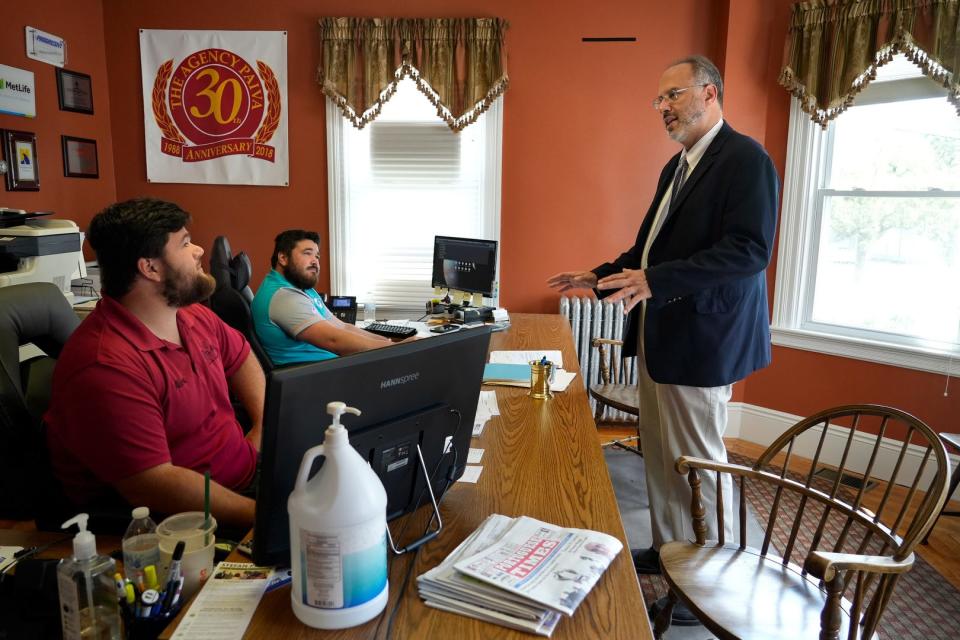
"We needed to put a plan together and take action to repair and revitalize Rhode Island's economy. That was the pitch."
And Pryor delivered, as one of many working to boost the state's employment. Around the time he stepped down as commerce secretary to run for treasurer, Rhode Island reached its lowest unemployment rate ever recorded using current methods of calculating the statistic.
Like Diossa, Pryor lists stewarding the state's money as his top priority if elected.
"First and foremost, the treasurer needs to manage the state's finances ably and manage the state's pensions fund responsibly. I will focus with intensity on those two objectives," he said. "Having managed billions of dollars in the course of my previous jobs I believe I am well positioned to do that work."
Other tasks he wants to accomplish:
• Using the treasurer's office to boost the state's economy. "I believe that the treasurer's office can be a catalyst for our economy."
• Promoting financial literacy and better access to the banking system. He would seek to remove barriers, such as minimum balances, that block people from entering the banking system.
• Promoting financing opportunities for small businesses.
• Helping victims of domestic violence leave abusive situations by providing anonymous "bridge financing" so they can get on firm financial footing without being financially tied to the person they are leaving.
• Weighing in on state tax policy, including advocating using budget surpluses to reduce the state's sales tax, especially during periods of high inflation. "If there is a surplus, it would be a good thing to offer Rhode Islanders some relief at the checkout counter."
While Pryor has held jobs in New Jersey, New York and Connecticut, he said Rhode Island is the last stop in his professional journey.
"This is where I now have roots and I'm planting more roots," he said. "Our qualify of life is unparalleled. I love the people of this state. It's a marvelous place in which to live and work. I do not expect ever to leave."
Pryor has been endorsed by the Rhode Island Manufacturers Association, whose members benefited from several programs the Commerce Corporation created during his tenure, as well as Rhode Island Building & Construction Trades Council, a coalition of construction unions; the correctional officers union and statewide firefighters union; and the mayor of Newport.
The winner of the Democratic primary faces Republican James Lathrop in the November general election.
This article originally appeared on The Providence Journal: How Stefan Pryor and James Diossa would approach RI treasurer job

